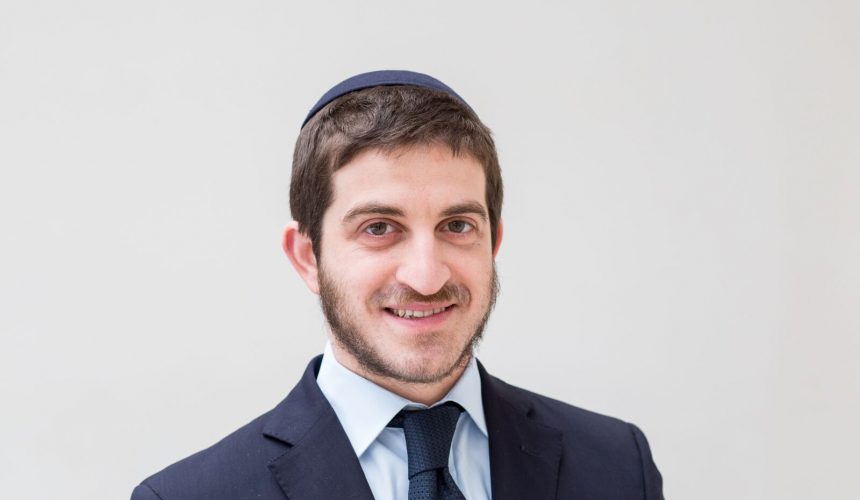COMBATTING LONELINESS “It was on the next day that Moses sat to judge the people, and the people stood before Moses from morning to night. Moses’ father-in-law saw everything he was doing for the people, and said, ‘What is this you are doing, sitting alone, and the people stand over you from morning till night…You will surely wear yourself out.’” (Shemot 18:13-14, 18) Reports this week of the English court system struggling with poor IT, remind us of the enduring relevance of Jethro’s advice to Moses, in this week’s parsha, in ensuring that he had adequate support to properly administer...
Shabbat Shira

Some trees only grow in warm climates like the Mediterranean; the olive tree is one of them. Scientists and archeologists believe it was likely on the Syrian-Turkish border that they were first cultivated. Its oleurpein compound makes it so bitter it is inedible. Yet once cured, its oils have such rich flavour. We don’t have many olive trees here in London, although there is one in West Ham Park walking trail planted by Lady Mayoress in 2007, and they are readily available in pots all year round, down the road in Clifton Greens, Little Venice. This week we read how the...
Beshalach

DIVINE DETOUR According to Google Maps to walk from Cairo to Jerusalem today would take less than 150 hours. As we know at the time of the Exodus, it took the Israelites forty years! The Torah tells us at the beginning of the portion that G-d did not lead the Israelites to their destination via the coastal route (Derech Eretz Plishtim), via the land of the Philistines even though it was the shortest route in those days. The reason given? “Lest they see war and want to return to Egypt.” Instead, the people go to the Red Sea and panic...
Bo

DID G-D GIVE PHARAOH CARDIAC DISEASE? Throughout the episode of the Ten Plagues, described in last week’s sidra and this week’s sidra, we read of the ‘hardening of Pharaoh’s heart.’ For the first five plagues, it is Pharaoh who hardens his own heart. For the subsequent plagues, we read that it is G-d who hardens Pharaoh’s heart. What does this mean? Did G-d cause him a hardening of the arteries? Did Pharaoh suffer from angina! We need to appreciate that the Torah uses the term ‘heart’ to refer to the source of a person’s moral, spiritual and intellectual capacities. (Indeed,...
Va’era

HAVDALAH IN EGYPT Before G-d strikes Egypt with the fourth plague, he has Moses declare to Pharaoh: “I will make a distinction between my people and your people.” (Shemot 8:19). When the plague struck the Hebrews living in Goshen were completely unaffected. When we make Havdalah at the end of Shabbat, we bless G-d who has separated “between the holy and profane, between light and darkness, between Israel and the nations, and between the seventh day and the other days of creation.” The late Rav Soloveitchik z”l (d. 1993) pointed out that there are distinctions between these different kinds of...
Shemot

WHERE THERE IS NO MAN, STRIVE TO BE A MAN When Moses leaves the comfort of the royal palace and goes out for himself to see how his fellow Israelites are existing under Egyptian slavery, he is shocked to discover that an Egyptian Taskmaster is beating a Hebrew Slave for apparently no reason, and the slave is being beaten to death. The Torah then says that Moses “looked this way and that; he saw that there was no man, so he struck down the Egyptian and buried him in the sand.” [Exodus 2:12] Rabbi Naphtali Zvi Yehudah Berlin, the great...
Vayechi

LIVING FOR OTHERS “And Jacob lived in the land of Egypt for seventeen years” [Genesis 47:28] Last week’s sidra concluded with the settlement of Jacob and his family in the Goshen region of the land of Egypt, where they acquired property and were fruitful and multiplied. This week’s portion begins by informing us that Jacob lived in the land of Egypt for seventeen years. Rabbi Meir Simcha of Dvinsk (early 20th century) in his commentary to the Torah, Meshech Chochma, observes that people can live their lives on different levels. Some people are content with a life that simply centres...
Vayigash Instagram
View this post on Instagram #ShabbatShalom #Parsha #Vayigash #ModernJew #Joseph #spirituality #Faith #God A post shared by Mendel Cohen (@mendel.cohen) on Dec 13, 2018 at 11:27pm PST
Vayigash

During another eventful week of political power struggles, I learnt about the influence of Benjamin Disraeli on the modern Conservative Party. Benjamin was born a Jew. Scholars debate the cause: maybe it was a quarrel with Bevis Marks Synagogue over £40 membership; the community’s insistence on him becoming parnas (treasurer); or a deep ideological difference of Anglo-Jewry’s assimilation and acceptance as members of society. But eventually, his father Isaac, had young Benjamin baptised. This enabled him to pursue a career in Parliament, denied to Jews until 1858, and gave him the opportunity to become Prime Minister twice. How does a...
Vayigash

REVERED OR REVILED The blurb on Niall Ferguson’s biography of Henry Kissinger (Volume I: The Idealist, 1923-1968) reads: “No American statesman has been as revered or as reviled as Henry Kissinger. “Once hailed as ‘Super K – the indispensable man’ whose advice has been sought by every president from Kennedy to Obama – he has also been hounded by conspiracy theorists…” Despite having arrived in the USA in 1938, Henry Kissinger, to this day, sounds like an outsider. His Jewish-German origins are unmistakeable, both to his credit and potential misfortune. In the portions of the Torah we are currently reading, Pharaoh...

